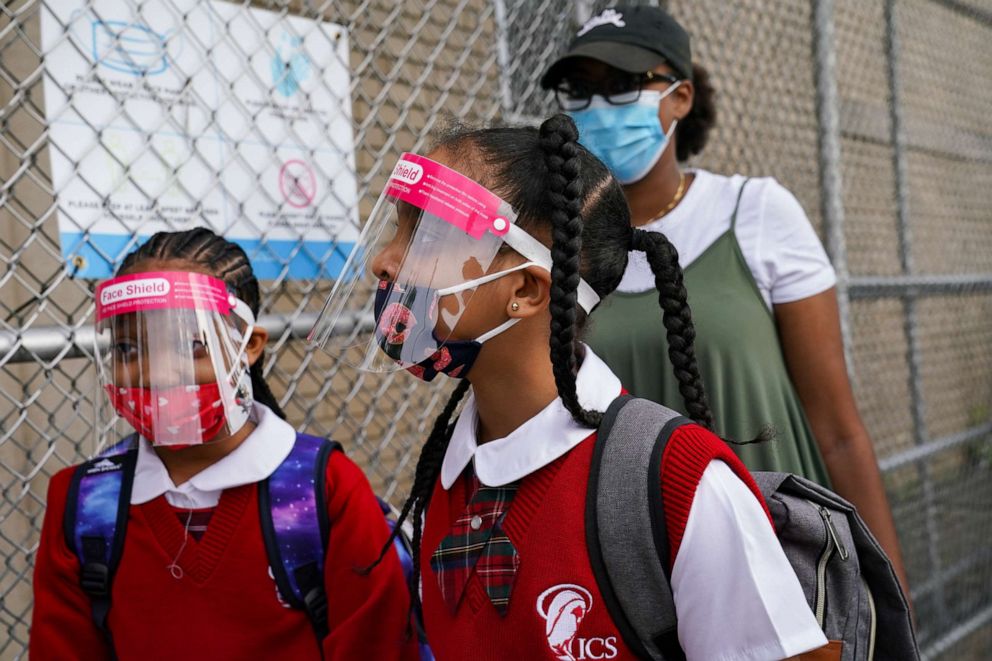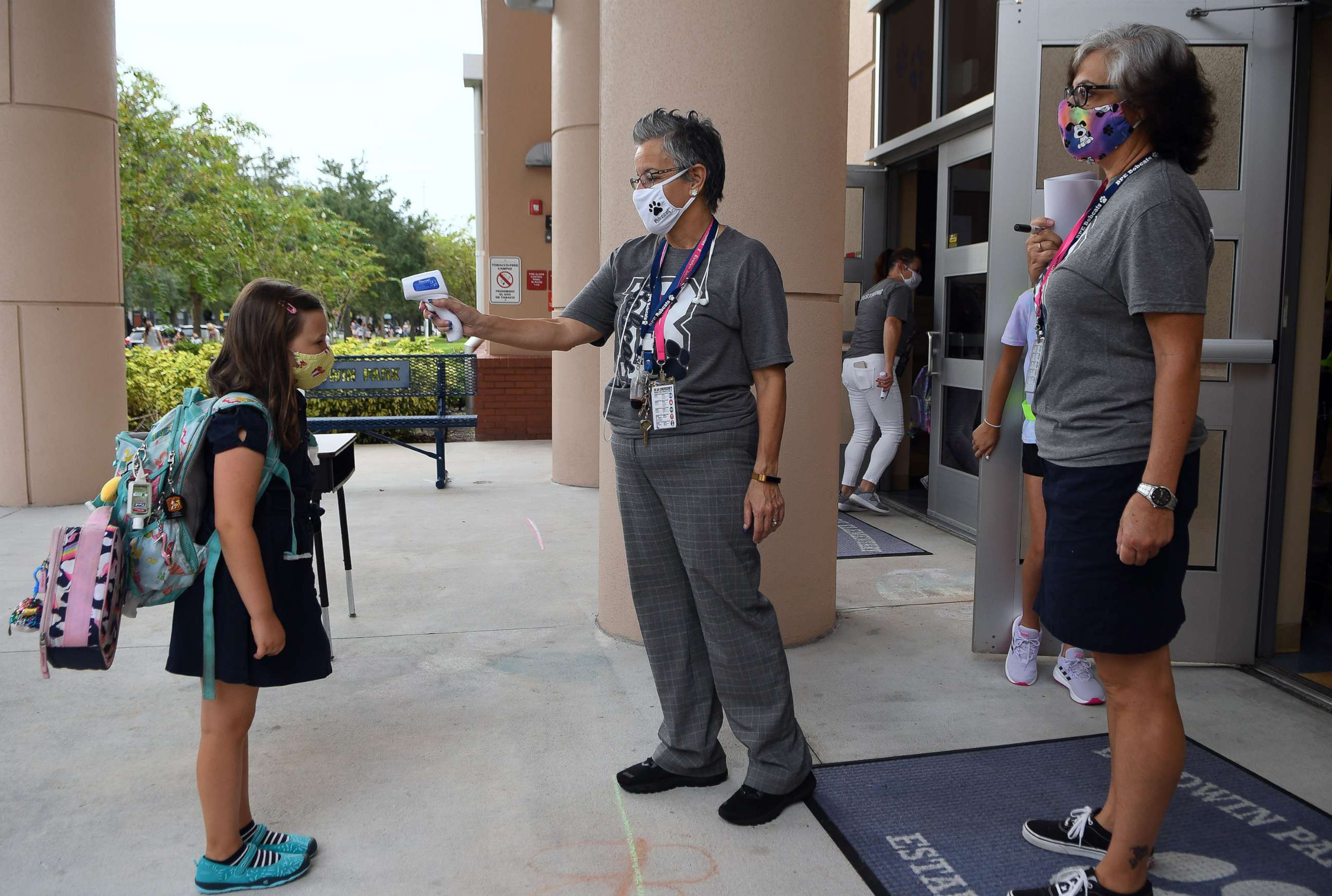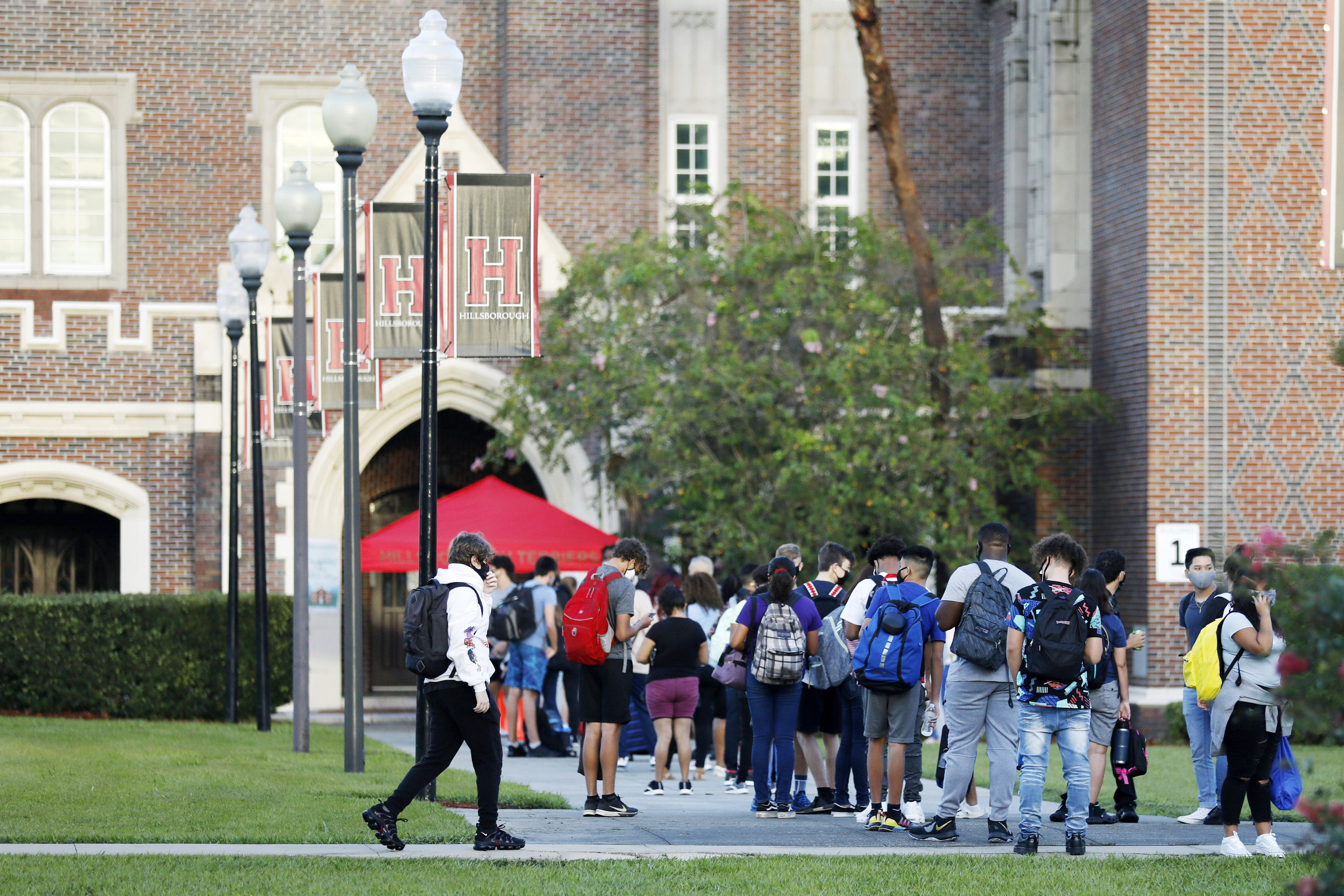Weeks into school year, groups pushing for more transparent coronavirus data
"You can't make decisions if you don't have information," one union leader said.
For several weeks, the Florida Education Association has been calling on state officials to release more information on COVID-19 in public schools. There isn't a statewide dashboard, and only about half of Florida's 67 school districts publicly report cases, the state's largest teachers union said.
"You can't make choices and you can't make decisions if you don't have information," FEA President Andrew Spar told ABC News. "You should be informing parents as to what's happening in their school. You should be informing educators, teachers, if they are being exposed to a serious virus."
The FEA is pushing for the Florida Department of Health and school districts to release the number of confirmed COVID-19 cases, the location of the cases and the number of people who have been quarantined. In some school districts, parents might not know if there are cases in their school, or even their child's classroom, Spar said.
"As a parent myself, I would want to know that," he said.
The union joins other organizations nationwide pushing for more transparent data as schools hold in-person learning during the pandemic.

Over 20 states do not currently publicly report data on COVID-19 cases in schools, according to an analysis earlier this week by The New York Times. Florida is among 10 states that plan to report it. State officials have previously said that the data is confidential, though in recent weeks the state health department promised to publish it. On Friday, a spokesperson told ABC News that the department is planning to report COVID-19 cases in schools and day cares in the "coming days and weeks."
Some states are gathering data on school COVID-19 cases, though what's available publicly can be inconsistent. Earlier this month, Georgia started mandating weekly reports on schools' coronavirus cases from all 180 districts. The state health department shares information on the number of outbreaks in schools, though public reporting by individual school districts may vary, The Atlanta Journal-Constitution has found.
Weeks into the school year, some states are working on releasing more information. This week, the Texas Department of State Health Services and Texas Education Association added district-level data to its school COVID-19 dashboard, which is updated weekly with confirmed cases from public schools. Though as of Friday evening, the organizations were working to resolve an issue with the school district data file.
In mid-September, the Michigan Department of Health and Human Services began weekly reporting of school-related COVID-19 outbreaks -- defined here as two or more connected cases -- in K-12 buildings, as well as colleges and universities. The measure, while welcome, was met by calls for more frequent and consistent reporting in school data.
In a Sept. 16 letter, the Michigan School-Related COVID Outbreak Transparency Coalition, a group made up primarily of news organizations in the state, urged Gov. Gretchen Whitmer to require school districts to notify communities within 24 hours of an outbreak and for the state health department to increase the frequency of its outbreak reporting data to at least twice a week "to make the report at least somewhat useful to students, families, educators and local communities in making their personal choices in COVID monitoring, testing, and other personal protection behaviors."

The coalition was "grateful" for the weekly updates, but "still felt it wasn't enough," Lisa McGraw, public affairs manager of the Michigan Press Association, which represents news outlets statewide, told ABC News. "School is such an integral part of a community. We, as reporters and journalists in Michigan, feel that it's a right of a community to have this information."
On Friday, in what has been viewed as a step toward more timely data, Whitmer issued an executive order requiring that by Oct. 5, school districts and private schools "publish information about any cases of a probable or confirmed COVID-19 positive individual present on school property or at a school function during the period of infection, in the manner prescribed by the Michigan Department of Health and Human Services."
Transparent insight into pediatric cases is key for decision-making as communities continue to reopen, said Dr. John Brownstein, an epidemiologist at Boston Children's Hospital and an ABC News contributor.
"We know that kids play a role in transmission," Brownstein said. "We need to have access to all the testing data in order to make the best possible decisions around reopening or rolling back reopening plans. We don't want to have missing data in the surveillance efforts."
There have been nearly 588,000 confirmed COVID-19 cases in children, representing about 10% of all cases, as of Sept. 17, according to the latest state-level report from the American Academy of Pediatrics. The number of new cases in children reported from Sept. 3 to 17 increased 15%, it found. There have been more than 200,000 cases in children reported Aug. 6 to Sept. 17, according to the AAP.

Resistance in sharing school COVID-19 data may be legal or logistical. Some officials have cited federal and state health-privacy laws for limiting reporting, while others have acknowledged the manpower needed to provide updates more than once a week.
Among other concerns, during a Florida Department of Education meeting this week, Commissioner Richard Corcoran said he didn't want to give parents "false alarm" about potential COVID-19 exposure, News Service of Florida reported.
McGraw posited that schools may not want the "stigma" of having COVID-19 cases, while for Spar, the issue has become politicized in Florida amid a push to reopen schools for in-person learning.
"It's not lost on anyone that the day the president of the United States said schools should reopen this summer, the commissioner of education issued an emergency order mandating that brick-and-mortar schools open," said Spar, whose union has sued the state over its opening order. "We worry that politics is being put ahead of the interest of our students and the people that work in our schools."
For now, FEA has been collecting available school data itself. Its "Safe Schools Report" pulls information from local school districts that are sharing cases online. It also updates the number of Florida school-age children who have tested positive for COVID-19 since Aug. 10, when schools started opening in the state. As of Friday evening, that number was 14,237, according to FEA.
"To me," Spar said, "there's a moral and ethical obligation of every one of our school districts, of the department of health, of every governor, of every local lawmaker, of every school board member, of every elected official, that they keep the public informed in a way that people can make right decisions."




